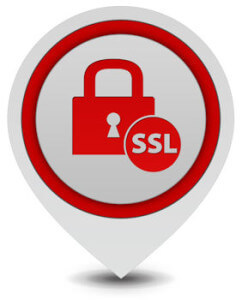 What is a SSL Certificate?
What is a SSL Certificate?
SSL Certificates are small data files that digitally bind a cryptographic key to an organization’s details. When installed on a web server, it activates the padlock https protocol. This allows secure connections from a web server to a browser. Typically, SSL certificates are used to secure credit card transactions, data transfer and logins. More recently are becoming the norm when securing browsing of social media sites.
When you visit a website that’s encrypted with SSL, your browser will form a connection with the web server, look at the SSL certificate, then bind your browser and the server. This binding connection is secure to ensure no one besides you and the website can see or access what you type.
If you plan on selling products on your website, you must have a SSL Certificate in place if you want to accept credit cards. Some shopping carts will save you the expense of a SSL certificate by having your buyers come to their website to complete the transaction. This is perfectly acceptable if the shopping cart blends in with your website seamlessly.
When your website has a SSL certificate in place you will notice a slight change in your website URL. The HTTP will be replaced with HTTPS on the secure pages of your website. This lets people know their credit card information is safe. When you sign up for an online merchant account you will need to provide proof that your website or your shopping cart has a SSL certificate.
Google gives more ranking credit to website that have SSL Certificates. So, having one also boosts your SEO ranking on Google.
You get your SSL certificate from your website host. Depending on your hosting package, there is usually a yearly fee for your certificate. In most cases your host will install the certificate for you and let you know when it is done. It is pretty easy and usually takes a day or two.
